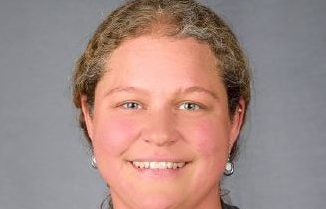JOHNSTON: Talking to your children about coronavirus
Published 5:19 pm Tuesday, March 17, 2020

- Shonda Johnston is the Clark County Extension agent for family and consumer sciences.
|
Getting your Trinity Audio player ready...
|
The spread of the coronavirus, or COVID-19, has captured the world’s attention on many levels.
The societal response has created a lot of change in our daily lives from school closures, canceling sporting events and most recently restaurant and other community closings.
We, as adults, are struggling to understand how to handle all this uncertainty and it is even harder for children.
Talking to your children about coronavirus can go a long way in making them feel safe, secure and loved.
Ways you can help your child will be different based on your child’s age, knowledge of the situation and their unique personality.
I’ve received some information from my childrens’ schools about how to talk to them about the current situation, so they may be a great resource in addition to these tips.
— Listen. Always be willing to listen to and answer your child’s questions, but realize not every child will want to talk about the subject.
You know your child best. If your child likes to process things slowly, let them. Allow them to bring it up in their own time.
If you’re unsure whether your child has questions, ask them.
— Honesty. When they do bring up the subject, try your best to answer your child’s questions correctly and honestly.
Talk about the subject in the terms of “strong germs or serious illness.” Relate it to something they may already be familiar with like the flu or a bad cold, but explain that some people respond differently.
Remind children the reason for the cancellations is an effort to keep us all safe and healthy, and there are many people working hard to stop, treat and cure the virus.
— Limit. Limit news footage of the virus as these can increase anxiety and sadness, especially in younger children.
If you find your child in front of a television showing virus updates, remain calm and try to move their attention elsewhere. Offer to play with them, ask about their day or read a book with them.
While you can’t promise your children the virus won’t affect them or people they know, you can reassure them there are people who are doing their best to keep them safe.
You can list these people like police officers, firefighters, health care workers and government officials who work to keep everyone safe.
As new developments and information become available, it is a good idea to check it against reliable sources such as the Centers for Disease Control and Prevention, which offers a wealth of information on the virus, and the World Health Organization, which currently has information dispelling myths.
I know our community is working together to streamline factual information so please look to our community organizations’ websites and Facebook pages for good information about local response and data.
If you get a minute, like the Clark County Cooperative Extension page where you can get all sorts of educational information while we are socially distancing.
Remember we are all in this together.
Shonda Johnston is the Clark County Extension agent for family and consumer sciences. She can be reached at 859-744-4682 or by email at shonda.johnston@uky.edu.





